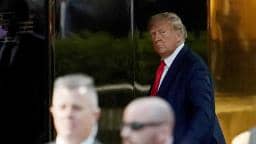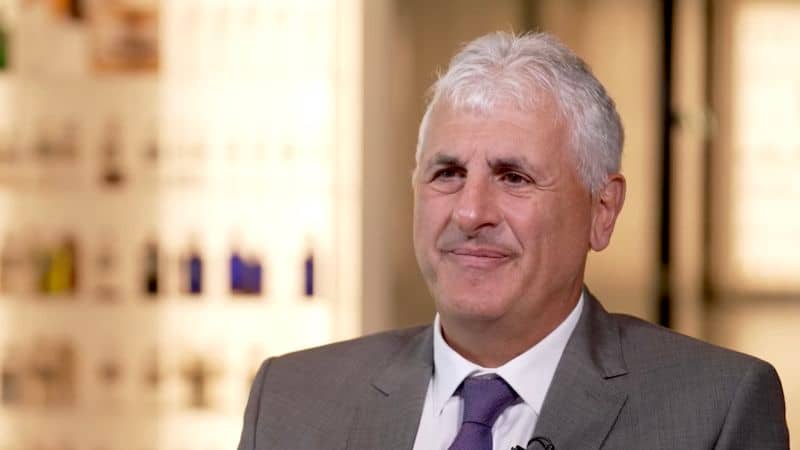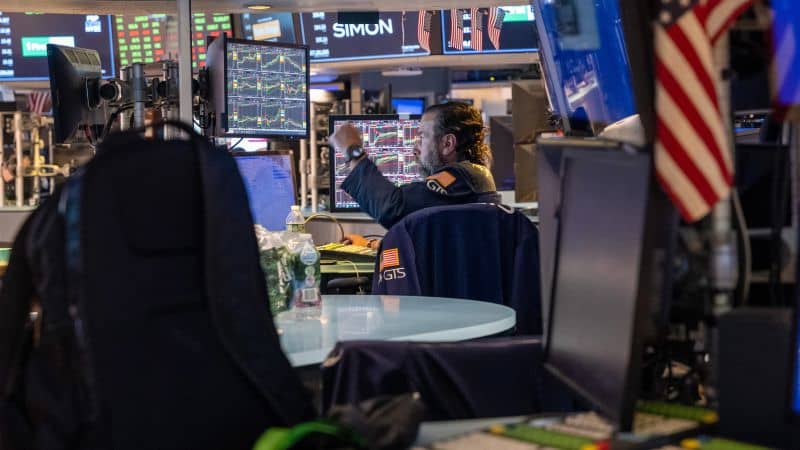“Wakanda Forever,” the sequel to “Black Panther,” Marvel Studios’ award-winning $1.3 billion grossing movie, had its African premiere in Nigeria — the first time Marvel has held an African premiere there. Attending
You may have never heard of PFAS, but you likely have these potentially dangerous chemicals inside your body. CNN’s Dr. Sanjay Gupta explains.
Don't Miss
What to know about the Trump indictment on the eve of his court appearance Source link
London CNN — When Africa needs medicines, all too often the continent must look abroad. African nations consume about 25%
A “Help Wanted” sign is seen at a Golden Krust location on June 7 in the Flatbush neighborhood of Brooklyn

“Wakanda Forever,” the sequel to “Black Panther,” Marvel Studios’ award-winning $1.3 billion grossing movie, had its African premiere in Nigeria — the first time Marvel has held an African premiere there.
Attending the event in Lagos, on Sunday, November 6, the film’s director, Ryan Coogler, and several leading actors spoke to CNN about the importance of celebrating the film in Africa’s most populous country, and how they hope the continued exploration of different cultures and history will impact global audiences.
The film follows the death in 2020 of Chadwick Boseman, who played King T’Challa — the Black Panther — in the original movie, released in 2018.
With the introduction of new anti-hero Namor, the king of underwater kingdom Talokan, who breaches Wakanda’s defenses while the country is still grieving the loss of T’Challa, “Wakanda Forever” presents another mythical and powerful nation, — this time with roots in Mayan culture.
Coogler, who also co-wrote the script, said that introducing another rich heritage was on the cards when he started developing the idea of the sequel in 2018. “We wanted to ramp it up by making it more culturally specific, more detailed, more personal. And even after Chadwick passed away, we stayed the course. I was speaking with him before he passed and he was excited about the direction that the film was going in,” said Coogler.
“Our diversity is our strength”
The 2018 film was one of the highest grossing films in Africa, with audiences responding favorably to the kingdom of Wakanda, which represented an amalgam of African countries and cultures and an ideology of an Africa many would like to see.
Lupita Nyong’o, the Kenyan-Mexican actress who plays Wakandan spy Nakia, told CNN she hopes global audiences will connect with the diversity showcased in the movie. “There is power in a diverse human experience,” she said. “I think it’s always good to be able to relate to people who do not look like you and to see your humanity in them. Our diversity is our strength as human beings.”
1/12
The African premiere of “Black Panther: Wakanda Forever” was held in Lagos, Nigeria. In attendance were its stars, including Lupita Nyong’o, who plays Wakandan spy Nakia. Nyong’o said she hopes global audiences will connect with the diversity showcased in the movie. Credit: PIUS UTOMI EKPEI/AFP/AFP via Getty Images
Nyong’o and her co-star, Zimbabwean-American actress and writer Danai Gurira, attended the Black Panther premiere in South Africa in 2018, and to them, having more of the cast come to the continent they call home is significant. “There’s always a comfort coming back to the continent. We are very different around Africa, but there’s also a through line there,” said Nyong’o. “There’s just something that feels more familiar, more accessible and I love that.”
The film’s score and soundtrack also celebrates the cultures championed in the movie, featuring a mix of Latin American and African artists such as Grammy-winning Nigerian artist Burna Boy, Ghana’s Amaarae, UK artist Stormzy, whose mother is Ghanaian, and Grammy-nominated Nigerian singer-songwriter Tems, who co-wrote the lead single “Lift me up,” sung by Rihanna. The soundtrack was recorded in Nigeria, Mexico and London.
Gurira, who reprises her role as General Okoye, the leader of the Dora Milaje, Wakanda’s all-female army, said of the premiere: “This feels like massive progress that so many of us are here this time. I’m very excited to be here and I think it is different from being in the US or in the West because the story is so rooted in the continent that the idea of it being celebrated here in a big way is only right.”
Also in attendance were actors Winston Duke, who plays M’baku, leader of the Jabari Tribe, Letitia Wright, who plays tech-whiz Princess Shuri, and Tenoch Huerta as Namor. The premiere was one of the opening films at the African International Film Festival (AFRIFF), which runs until 12 November.
“Black Panther: Wakanda Forever” is released in theaters worldwide on November 11.
Don't Miss
You may have never heard of PFAS, but you likely have these potentially dangerous chemicals inside your body. CNN’s Dr.
“Before the end of this year, we will put the country in electoral mode,” Prime Minister Ariel Henry told the
“Before the end of this year, we will put the country in electoral mode,” Prime Minister Ariel Henry told the country on Monday, though stopping short of setting a date.
Henry, who previously postponed a planned general election amid criticism of the then-electoral council, also felt compelled to defend the delay. “To all those peddling rumors that I intend to keep power, I say that is false,” he added.
Elections are long overdue. The last time Haitians got to choose their own political representatives was in 2016. Parliamentary elections scheduled in 2019 were never organized under the then-presidency of Jovenel Moise, nor were general elections after that.
The Caribbean nation has thus been ruled by decree for three years, first under Moise until his shocking assassination last year, and now under Henry, his appointed successor.
At both men’s sides has been the United Nation’s Integrated Office in Haiti. Known as BINUH, this political mission will mark its third anniversary of operations this October — but faces mounting challenges as the time to hold a vote stretches on.
‘Let’s get through the next elections’
Helen Meagher La Lime, the head of BINUH and Special Representative of the UN Secretary-General for Haiti, told CNN that her focus is to help Henry’s government reach a consensus with opposition and civil society leaders in order to start organizing elections. The process began last year in the wake of Moise’s assassination and has proven painfully slow so far.
“We have a lot of work to do in getting to elections, we need to get this consensus established so that an electoral council can be established. They need to do some work on the Constitution, revisions or a rewrite of the Constitution needs to take place. And then the elections need to get organized,” La Lime said last month, in her first interview since BINUH’s yearlong mandate was renewed by the UN Security Council.
Large swathes of Haiti’s opposition say they do not trust Henry to hold elections, calling instead for a transitional government to take over running the country first. Some also view La Lime and other outsiders with skepticism, in a country where imperialism, occupation and even well-meaning intervention have a long and brutal history.
“Henry must not be allowed to use his support from the international community to continue to concentrate all powers under his exclusive — and failing — leadership,” wrote Jacques Ted St Dic, a member of the Montana group coalition advocating for a transitional government, in an op-ed published last week by Just Security.
“Without legitimacy and without popular confidence in the electoral process, any elections held will be questioned and the new leaders will lack the popular support to institute desperately needed reforms. This is the cycle that has locked Haiti in paralysis for a dozen years,” he also wrote.
La Lime declined to discuss the possibility of a transitional government, telling CNN, “Those are ideas that have to be discussed by Haitians, and a consensus reached by Haitians.”
Instead, she extolled the simple power of shared lunches, provided by BINUH at a local hotel, for bringing political voices together in Haiti. On the basis of such dialogue, she predicted the country could potentially reach elections in 2023 — and even suggested that BINUH itself might no longer be needed after that.
“Let’s get through the next elections to see what levels of stability we have at that point. And then BINUH will consider leaving,” La Lime says. “We are not here forever.”
Making Haiti safe for a vote
The current backdrop of violent unrest in capital city Port-au-Prince makes organizing elections hard to envision, even for those who want change most.
Brutal gang battles in parts of Port-au-Prince this summer saw whole neighborhoods set aflame, displacing thousands of families and trapping others in their homes, afraid to leave even in search of food and water. Hundreds were left dead, injured or missing. Criminals still control or influence parts of the country’s most populous city, and kidnappings for ransom threaten residents’ day-to-day movements.
Part of a larger ecosystem of UN entities and NGOs operating in Haiti, BINUH’s operations are largely limited to consulting with and assisting Haiti’s government and National Police (HNP). Its regular reports are powerful and detailed, documenting in stark language the state of civil society, politics and human rights in the country.
Recognizing the security crisis, BINUH embeds several dozen officers as advisers within the police, and the UN has also announced a new “basket fund” to support the police, which aims to raise 28 million over the next two years. But that money is aimed at long-term goals like funding recruitment and training, increasing the representation of women on the force, and improving police infrastructure and stations, La Lime said.
“The UN can’t fix anything,” La Lime told CNN. “The UN can work with the government of Haiti and the institutions of Haiti to produce an improved result.”
Impatience is growing. In recent weeks, demonstrators in several cities called for Henry’s resignation in the face of high fuel prices, soaring inflation, and unchecked crime. Henry on Monday acknowledged the popular fury, asking for calm — but also announced he would raise gas prices, igniting further protests.
And in August, Luis Almagro, General Secretary of the Organization of American States, blasted global do-gooders, labeling the international community’s efforts in Haiti as “one of the worst and clearest failures implemented and executed within the framework of any international cooperation.”
La Lime readily acknowledges the critics. “Yes, the results are not what they should be,” she told CNN.
Still, her job is not to take responsibility for the past — nor even to shoulder much of it now, she implies.
“I think what we need to do is look at the lessons see what we how we need to work differently. I don’t think we’ve placed enough emphasis on the partnership. In other words, what is it that the Haitian side needs to do to make the effort more sustainable?”
Don't Miss
London CNN — When Africa needs medicines, all too often the continent must look abroad. African nations consume about 25%
‘Putin is a killer,’ says Ukraine goalkeeper as he sends a message of hope to his country Shaktar Donetsk and
A “Help Wanted” sign is seen at a Golden Krust location on June 7 in the Flatbush neighborhood of Brooklyn











